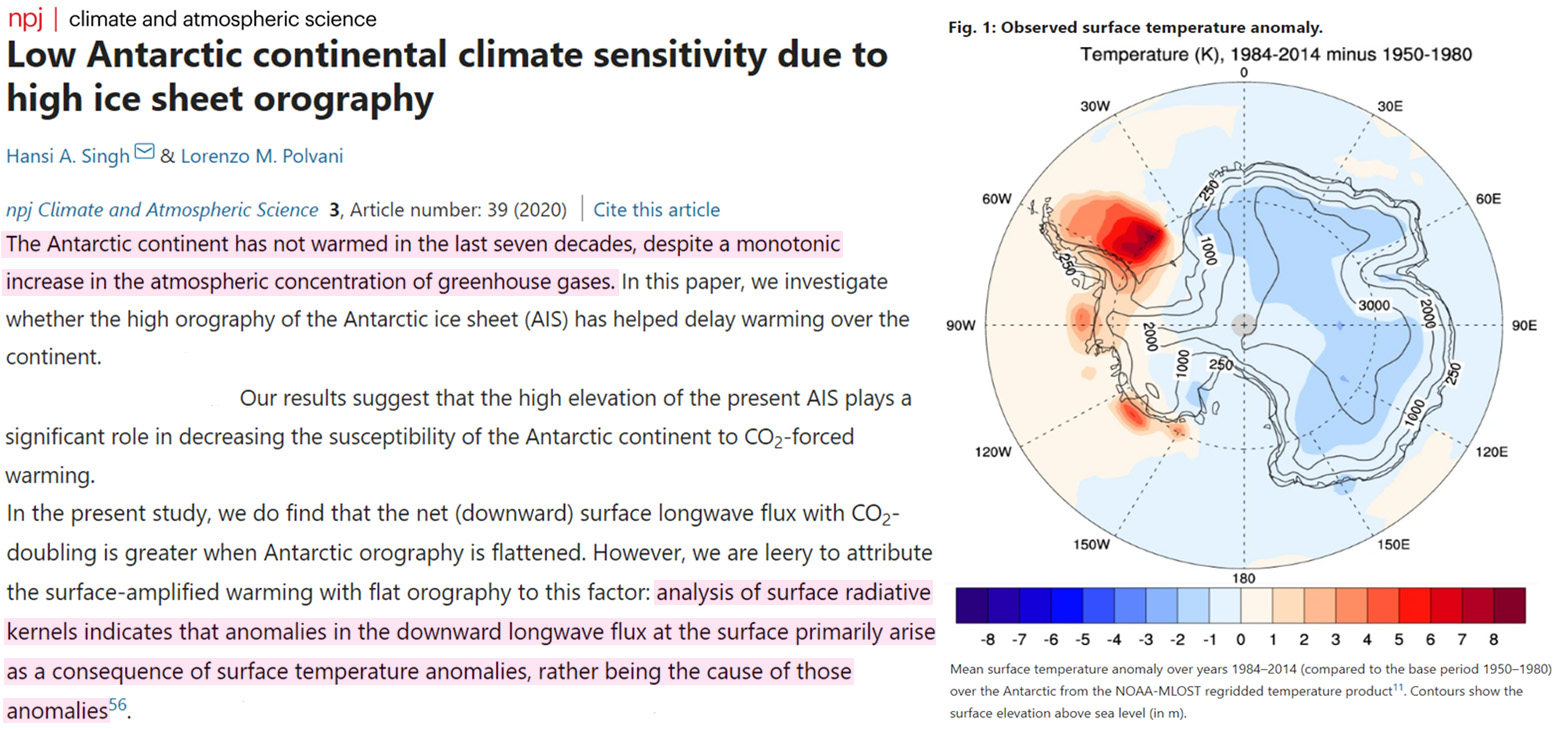But I thought the climate began in 1850? Before that everything was idyllic, birds landed on your head and sang for hours. Predators became vegetarians. Whales gave children rides. Greta told me this. https://t.co/BiYJooBRh0
— Patrick Moore (@EcoSenseNow) January 14, 2021
What Global Warming? 148 New (2020) Scientific Papers Affirm Recent Non-Warming, A Degrees-Warmer Past
By Kenneth Richard
Scientists continued defying the “unprecedented” global warming narrative by publishing nearly 150 papers in 2020 that show large regions of the Earth (a) haven’t warmed in recent decades, (b) were as-warm or warmer within the last several centuries, and/or (c) were 1-7°C warmer than today just a few millennia ago.
Here is the link to the 2020 (and 2019) Non-Global Warming scientific paper database:
Non-Global Warming Studies From 2020 & 2019
Below are 8 examples of the 148 non-global warming papers published in 2020.
Martin et al., 2020 France max Holocene temps (14°C) were 7°C warmer than the modern value (7°C)
“Modern climatic parameters were obtained from the instrumental database of Meteo-France at the nearby station of Mazet-Volamont (1130 m) located 11 km distant, for the period 2009-2017 … Temperature values were corrected using a lapse rate of 0.6°C/ 100 m. Mean annual temperatures vary between 6 and 9°C with a mean value of 7°C. … The mean annual temperature for the entire Holocene was 11.3°C, i.e. 4.1°C above the modern value. The maximum of 14°C and a minimum of 7.6°C were reached, respectively, at 7.8 and 1.7 kyr cal BP. … The last 200 years display an opposite trend … MAAT decreased by 3.1 and 3.3°C for the lake calibrations, Sun et al. (2011) and Russell et al. (2018), respectively, and 2.1°C for the soil calibration.”
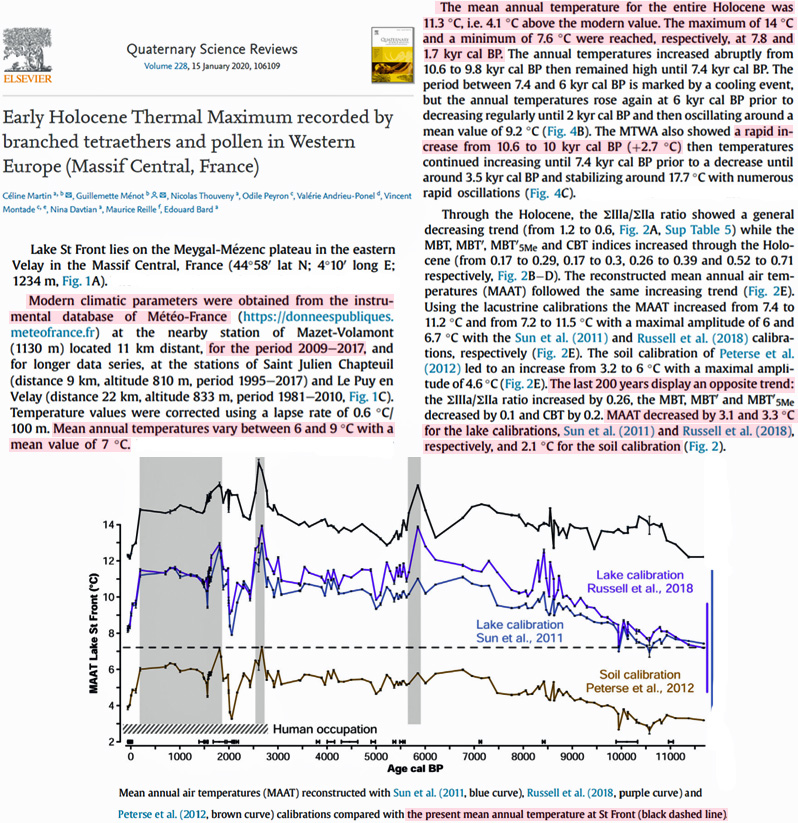
Hou et al., 2020 W. Tropical Atlantic 1-5°C warmer throughout last ice age (190 ppm CO2)
“Our results indicate a lack of pronounced glacial-interglacial variability in the SST record, prompting us to exclude atmospheric pCO2 as a direct driver of SST variations in the southern WTA [western tropical Atlantic].”
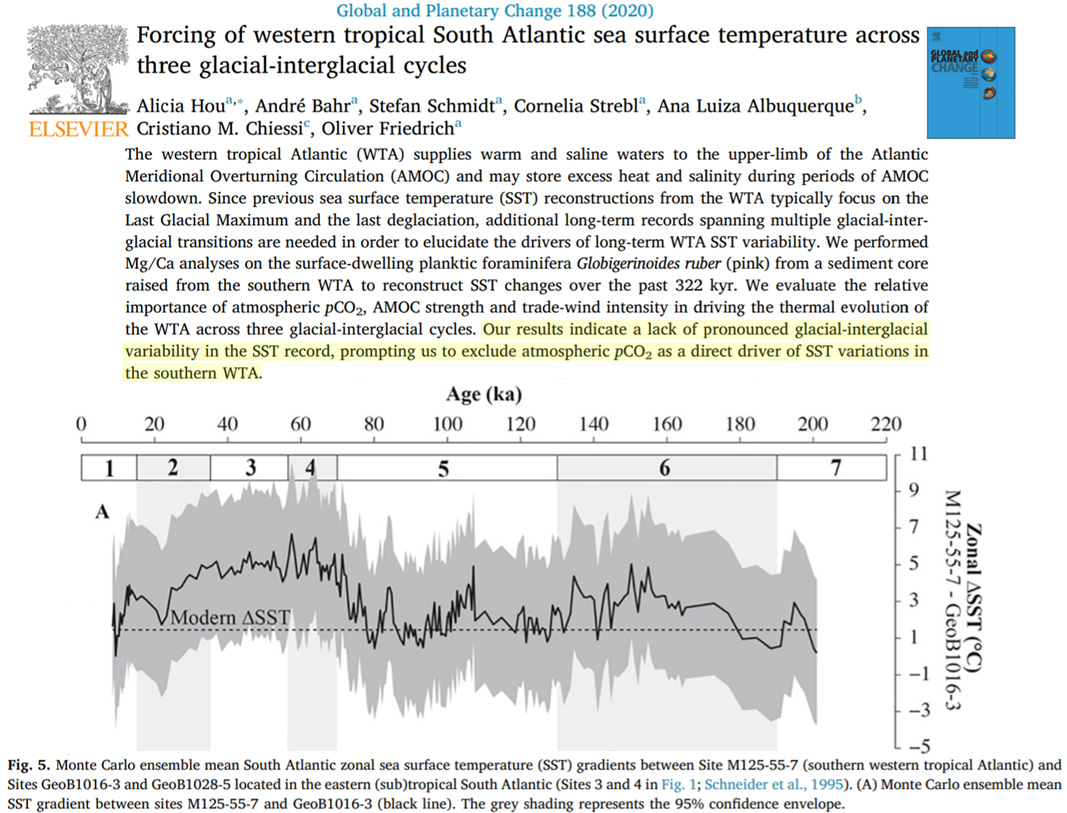
Xia et al., 2020 Subantarctic Georgia “summer temperature between 10°C and 5°C higher than present”
“Although the biomarker-based paleotemperature proxy has been calibrated for modern temperature data of regional lakes, summer temperatures as high as 14°C reconstructed from Fan Lake are outside the range of their modern calibration dataset in which the warmest site has a summer temperature of only 10°C (Foster et al., 2016) … The CARs increased to as high as 140 g C m² yr¹ at 4000-3500 cal yr BP and 70 g C m² yr¹ at 3200-2700 cal yr BP when summer temperature was around 10°C and 5°C higher than present, respectively “
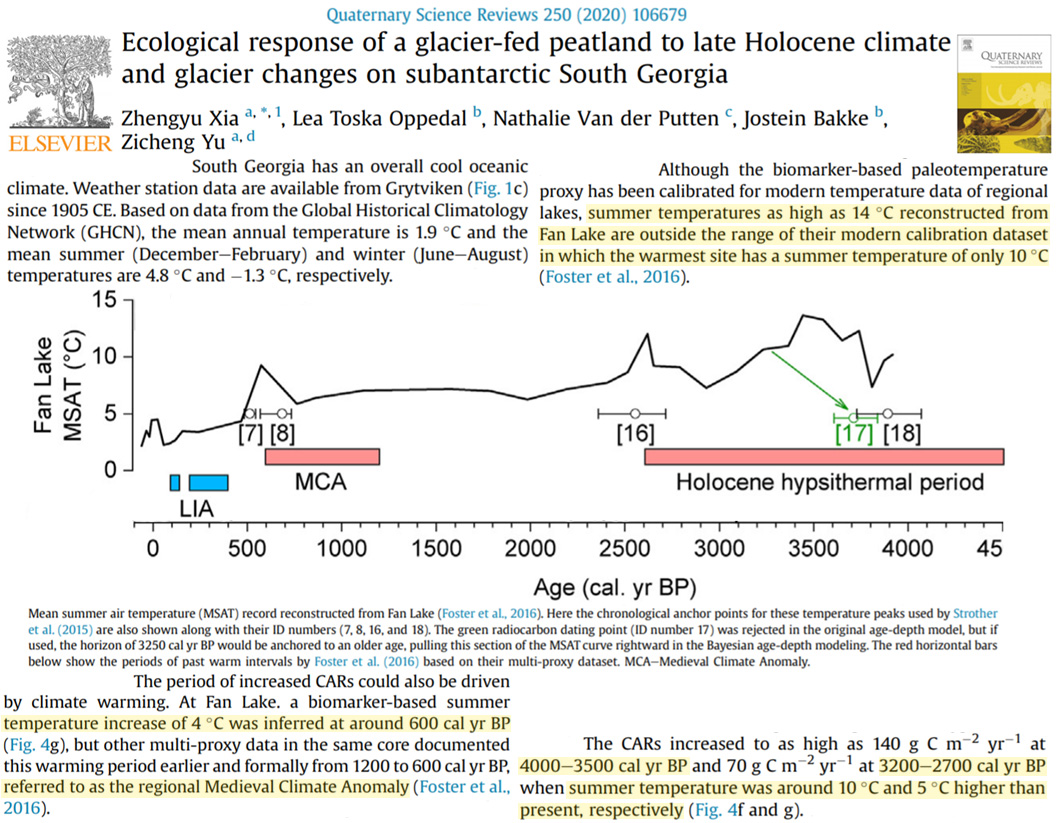
Gebbie, 2020 Modern global ocean heat 1/3rd of what’s required to reach Medieval levels
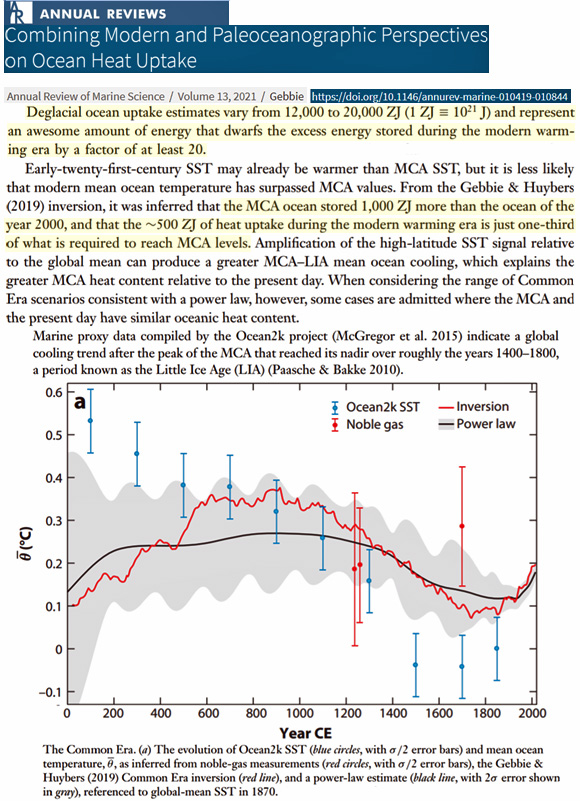
Wangner et al., 2020 SE Greenland warmer 1920s-1940s
“The cold decades after 1950 coincide with the Great Salinity Anomaly in the late 60s to early 70s, caused by the long-term decrease of the North Atlantic Oscillation (NAO) index favoring the export of freshwater and ice through Fram Strait into the EGC (Dickson et al., 1996). Within two or three years, the associated salinity anomaly reached the Labrador Sea causing a reduction of the convection and subsequent weakening of the Atlantic Meridional Overturning Circulation (AMOC). This mechanism explains the low temperature on the SE-Greenland shelf and the positive AMV during this time period (Ionita et al., 2016, Figure 6d). … Displayed in the alkSST record from Skjoldungen as well as in the CTD measurements off Skjoldungen (Figure 5d) is a return to lower temperatures post 2006, pointing out the exceptional high temperatures around 2000. … Our study shows that even though the meltwater production may have been influenced by climate, the glacier margin position and iceberg calving remained relatively constant in the 20th century. This may be due to the setting of the glacier with a limited ice-ocean interface and a 90° inflow angle acting as a pinning point in its current position. Our study illustrates that ocean heat may have a limited effect on some marine glaciers.”
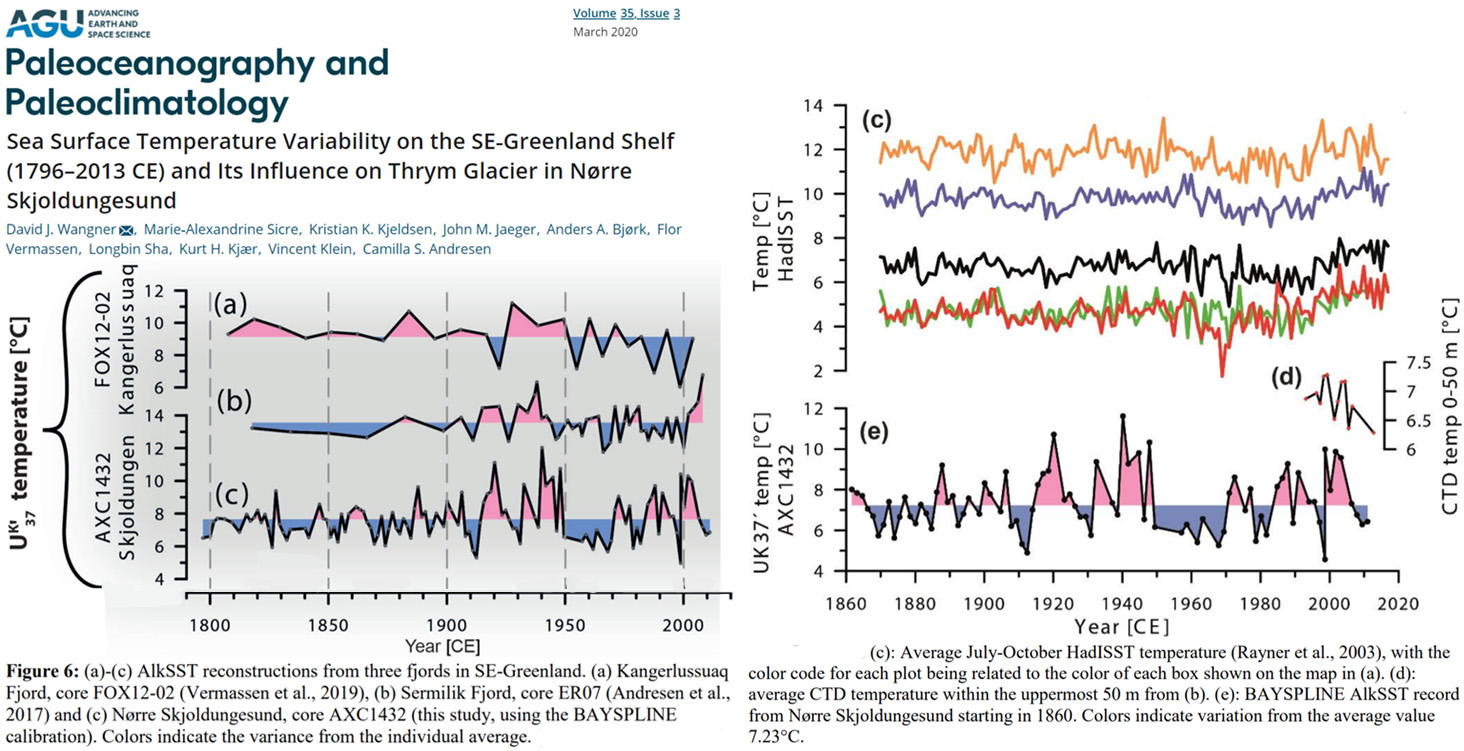
Sun et al., 2020 NW China no warming since 1600s, cooling since 1950
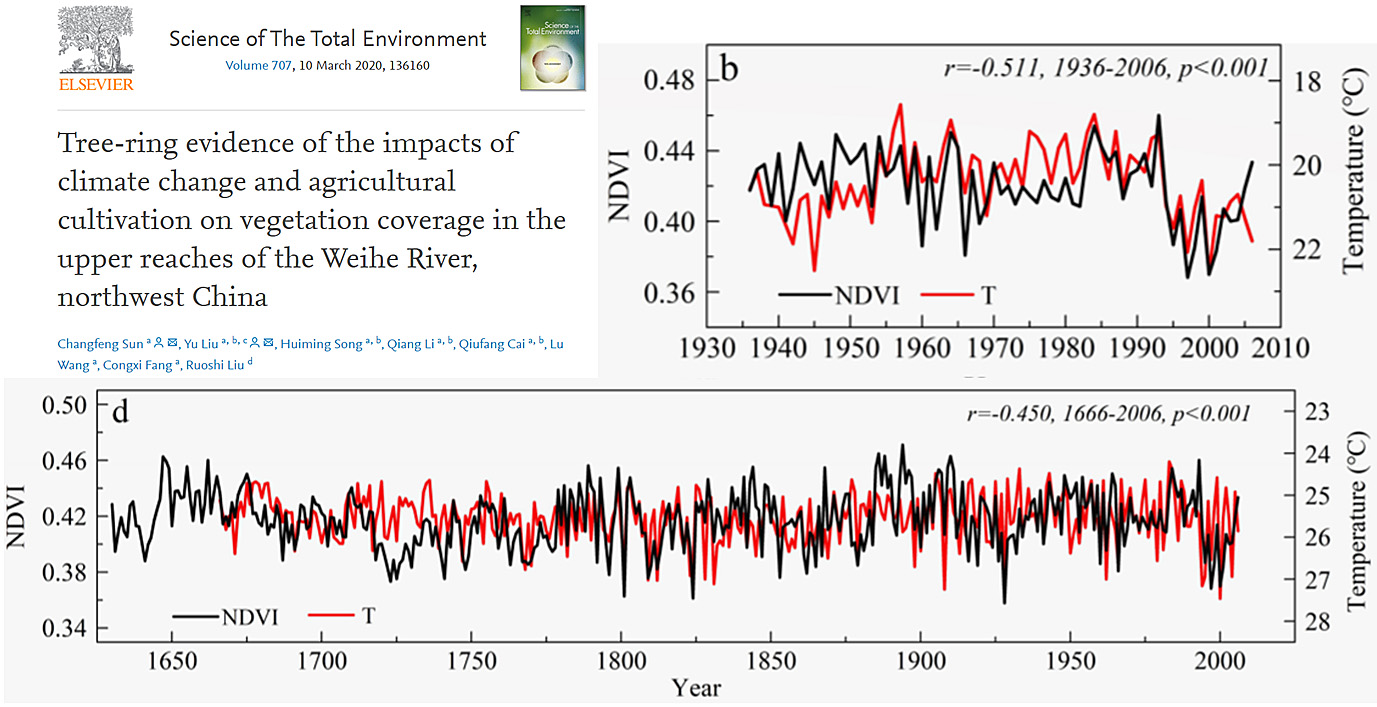
Weckstrom et al., 2020 Northern North Atlantic cooling and sea ice growing since 1930
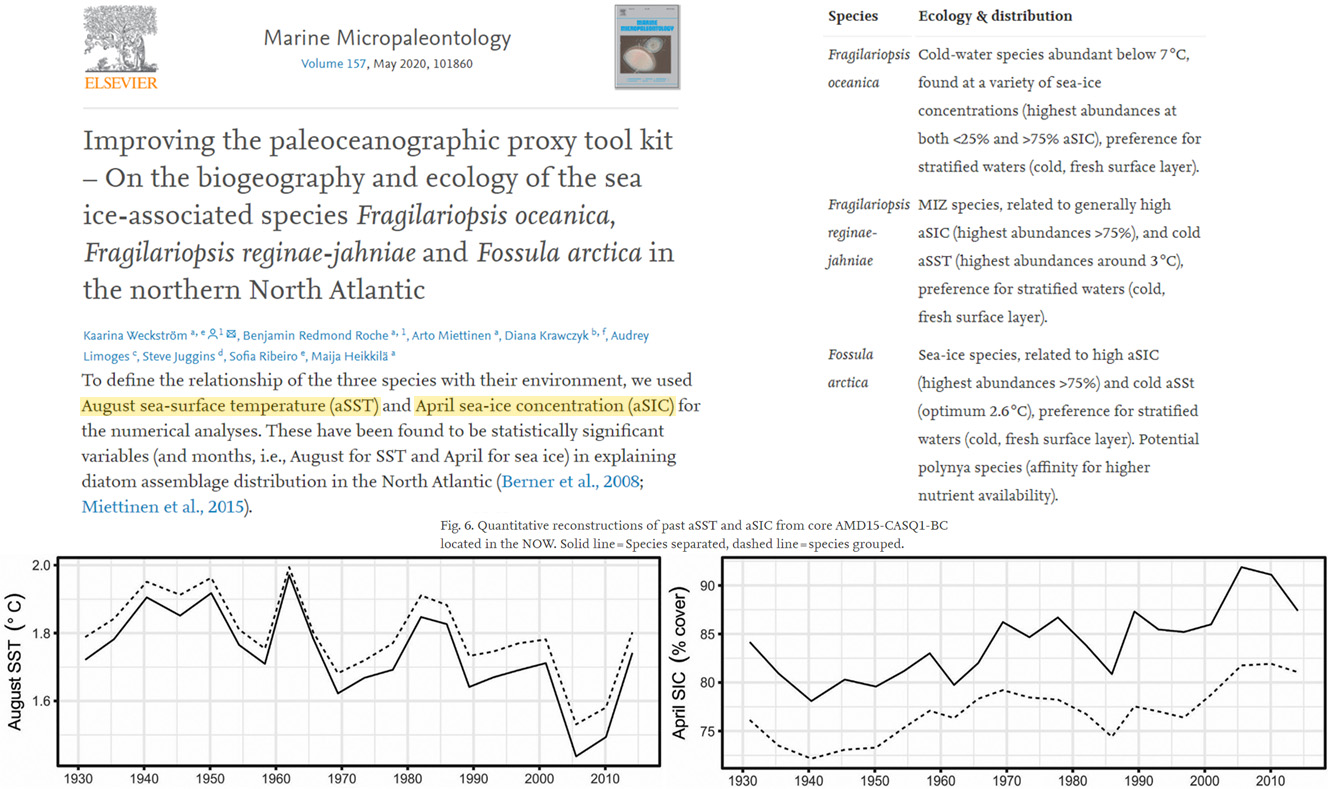
Singh et al., 2020 “The Antarctic continent has not warmed in the last seven decades”
“Low Antarctic continental climate sensitivity due to high ice sheet orography … The Antarctic continent has not warmed in the last seven decades, despite a monotonic increase in the atmospheric concentration of greenhouse gases.”
